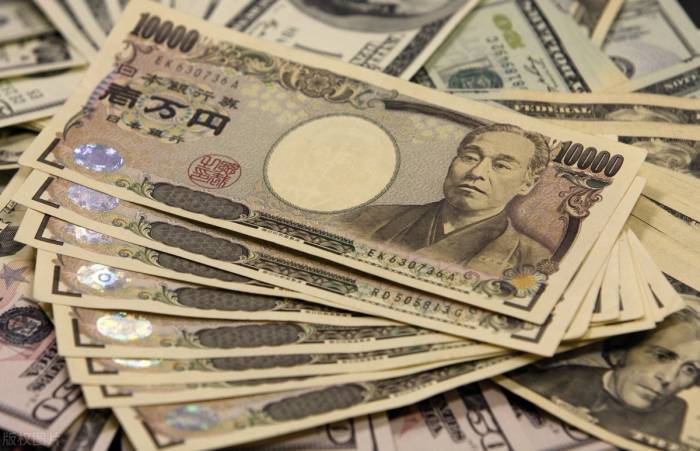In recent months, the financial landscape in Japan has sent ripples across global markets, with two major banking institutions finding themselves in serious trouble due to substantial unrealized losses. On July 25, Japan Post Bank, a prominent state-owned entity previously focused on domestic securities, revealed a staggering 14.3 trillion yen (approximately 93 billion dollars) in unrealized losses. This alarming disclosure suggests impending challenges not just for this institution but indicates potential systemic issues within Japan’s larger banking sector.
Only a month earlier, on June 18, the Central Agricultural and Commercial Bank of Japan made its own startling announcement, estimating sales of over 10 trillion yen (around 63.2 billion dollars) in U.S. Treasuries and European bonds to cover substantial unrealized losses. The bank projected a net loss for the fiscal year 2024 might soar to 1.5 trillion yen. At the time, both Japanese officials and the central bank downplayed the situation, labeling it merely an isolated incident. However, as Japan Post Bank faces a similar downturn, it raises serious questions about the veracity of those assurances and underscores a troubling reality confronting Japan’s banking sector.
The ramifications of these banking troubles extend beyond Japan’s borders. The scale of unrealized losses suggests a broader trend in foreign debt acquisition by Japanese banks, not merely a coincidental or isolated mishap. The situation becomes even more dire considering the fact that banks in Japan have heavily invested in foreign securities in recent years, a strategy that has now backfired amid rising interest rates and a fluctuating yen.

What makes the predicament of Japan Post Bank particularly unsettling is its significant investment portfolio, documented in its financial statements from April this year. The total investment assets amounted to an eye-watering 226.3 trillion yen, with 34.6% — approximately 78.3 trillion yen — allocated to foreign securities. This immense exposure dwarfs the holdings of the Central Agricultural and Commercial Bank at the time of its own troubles, which had about 35.7 billion dollars in U.S. Treasuries. Under current exchange rates, Japan Post Bank’s foreign investments equate to roughly 509 billion dollars, indicating an extensive and precarious position in global markets.
Japan's growth in overseas bond investments can be traced back to its transition from a government-owned entity primarily focused on national bonds, to a privatized institution pursuing higher returns through foreign investments post-2018. Many of these investments were structured as low-yield offerings, and in the face of recent aggressive interest hikes by the Federal Reserve, they have transformed into significant liabilities. As long as the Fed does not implement interest rate reductions, Japan Post Bank will likely continue to face severe financial strain.
The current turmoil echoes sentiments akin to the crisis encountered by Silicon Valley Bank back in the U.S., provoking comparisons about how certain lending and investment strategies can lead to devastating repercussions when market conditions turn unfavorable. Furthermore, the scenario is worsened by a widespread trend throughout Japan's banking sector, as many institutions are found to hold substantial amounts of foreign debt — a fact that concerns both domestic and international observers.
The risk of further destabilization in Japan should not be overlooked. If other banks follow the lead of Japan Post Bank and the Central Agricultural and Commercial Bank to divest their foreign bond holdings under the justification of ‘stop-loss’ measures, it could spark a severe downturn in the U.S. Treasury market. With the market already showing tight liquidity conditions, any mass sell-off could exacerbate existing vulnerabilities, compelling financial authorities like Treasury Secretary Janet Yellen and Federal Reserve Chair Jerome Powell into a state of urgency.
Market conditions are also startling, as the U.S. federal government’s debt has now surpassed the 35 trillion dollar threshold, posing a precarious position for the nation’s already beleaguered debt market. Any significant adverse movements could have pronounced implications not just for Japan's economy but for the broader global financial system.
As we delve deeper into the effects of these developments, we also witness the elevated risk of yen carry trades facing a robust reversal. Rising yen values create difficulties for investors previously profiting from low-yield borrowing to purchase higher-yielding currencies. As the market reacts, a rush to cover positions leads to heightened demand for the yen and an abrupt spike in its value, potentially destabilizing not only Japanese exporters but affecting global trade flows.
Market analysts are observing closely as trends reminiscent of pre-2008 financial upheaval begin to surface. Capital.Com's senior market analyst Kyle Rodda emphasizes that the current unwinding of yen carry trades presents a significant deleveraging event, suggesting that history may be poised to repeat itself, invoking memories of past crises.
The unfolding events lend an air of urgency as the world approaches a potential turning point for the global economy. July 29 marked a tentative halt in yen appreciation, followed by renewed depreciation on July 30, leaving many analysts questioning whether the yen’s flow of strength has been curtailed. Speculation runs rampant as we await the conclusions from the upcoming Bank of Japan meeting on August 2, where further policy direction could significantly affect market stability.
The impact of potential tapering of asset purchases or increases in rates by the Bank of Japan could unsettle global financial markets, with implications rippling outwards from Tokyo. As Japan continues its intricate dance with financial recovery and stability, the decision-making at the central bank unfolds as the weight of the world’s financial health hangs in the balance.
